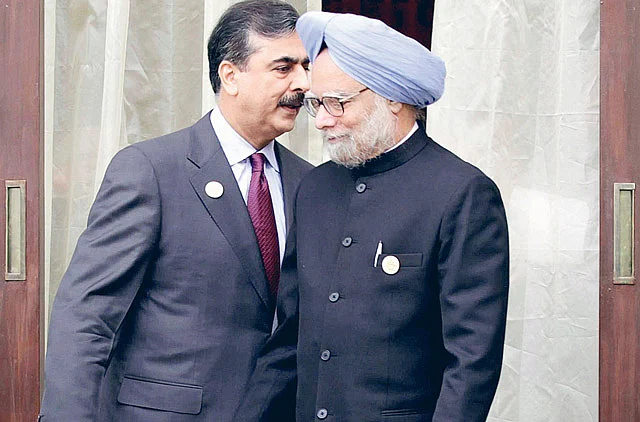It is unanimously agreed that South Asian countries will continue to lag behind in development unless they Cooperate. The recently concluded South Asian Association for Regional Cooperation (Saarc) summit in Thimphu has only reinforced the importance of Cooperation and trust building.
So far in the region, we have managed to create several institutions for regional Cooperation, but haven't given them any teeth. Cooperation in South Asia pales in comparison with the progress made by similar blocs in East and South-East Asia.
On the plus side, however, demands and dreams for regional progress have never been more optimistic. But talk is cheap and declarations do not amount to regional Cooperation. Saarc's goals will only be met when we can see free movement of people, goods, services and ideas. Fulfilling the larger goals for the region also necessitates rising above the narrow boundaries of nationalism and parochialism to see the bigger dream.
The biggest impediment to these dreams, however, is the hostility and mutual mistrust of the nuclear-armed neighbours, India and Pakistan, and their age-old issues. It was heartening to see that, on the sidelines of the summit, the two countries put on a rare show of maturity and inched closer to a resumption of dialogue.
The prime ministers of India and Pakistan spoke about bridging the severe trust deficit that has plagued bilateral relations and pushed for discussions on all issues of contention; including, Kashmir, Sir Creek, Siachen and the water-sharing issues, the latest in a long line of misunderstandings. But both Kashmir and water are merely symptoms of a problem, not the disease itself. The disease is the suspicion, mutual mistrust and bias that pervades all interactions. Issues will continue to be created, and salt will continue to be rubbed into old wounds, because certain quarters will play up the fundamental Hindu-Muslim divide to their advantage. How can we escape this recurring predicament?
Progress
Both prime ministers seemed to have come a long way with each other, and developed some form of rapport. Manmohan Singh, especially, has made rapprochement with Pakistan a foreign policy priority for his second term and has rotated key advisors accordingly.
But why has New Delhi made this U-turn all of a sudden?
In the aftermath of the Mumbai attacks, India stalled the resumption of composite talks. They emphatically refused to resume dialogue until Pakistan took strict action against the perpetrators and financiers of 26/11. What has really changed since then? The main accused in the 26/11 case, Ajmal Kasab, hasn't revealed much about his handlers in court, and the Lashkar-e-Taiba's Hafiz Saeed walks free. Perhaps it feels that its refusal to negotiate with Islamabad is perceived internationally as a self-imposed restriction on its sphere of involvement in the war on terror, and in global affairs. While Pakistan has been playing an astute diplomatic game on the world stage, the Singh government has finally realised that they need to show flexibility and maturity in their foreign policy.
For India, the restoration of trust rests on three key priorities — firstly, for Islamabad to do everything in its power to prevent militants from using Pakistani soil to conduct attacks on India; secondly, for the seven men currently on trial in Rawalpindi for their involvement in 26/11 to be sentenced; and thirdly, for Pakistan-based rebels to stop infiltrating into the Kashmir Valley.
Pakistan Prime Minister Yousuf Raza Gilani has agreed to all three priorities, but if Singh is going to try and sell peace to the Indian populace, he will need more than sweet whispers from Gilani to convince voters. Islamabad, on the other hand, has serious apprehensions about the current state of the Indus Water Treaty. Gilani and his ministers will be looking for an all-encompassing dialogue to address water management, usage and administration. But it is hard to imagine India agreeing to surrender rights given to it by the Treaty or taking on any new obligations in the absence of trust and without any quid pro quo.
Both countries are now bound to deliver to the other, to fulfil their own interests. India has to discuss water if it wants action on its priorities, and Pakistan has to tackle militancy on its soil if it wants to be able to extract concessions from India on the water treaty. Although India and Pakistan are reluctant to term this re-establishment of contact a ‘resumption of composite dialogue' because of political compulsions, they have worked around the confines of semantics.
- Rakesh Mani is a 2009 Teach For India fellow.
Sign up for the Daily Briefing
Get the latest news and updates straight to your inbox
Network Links
GN StoreDownload our app
© Al Nisr Publishing LLC 2025. All rights reserved.
